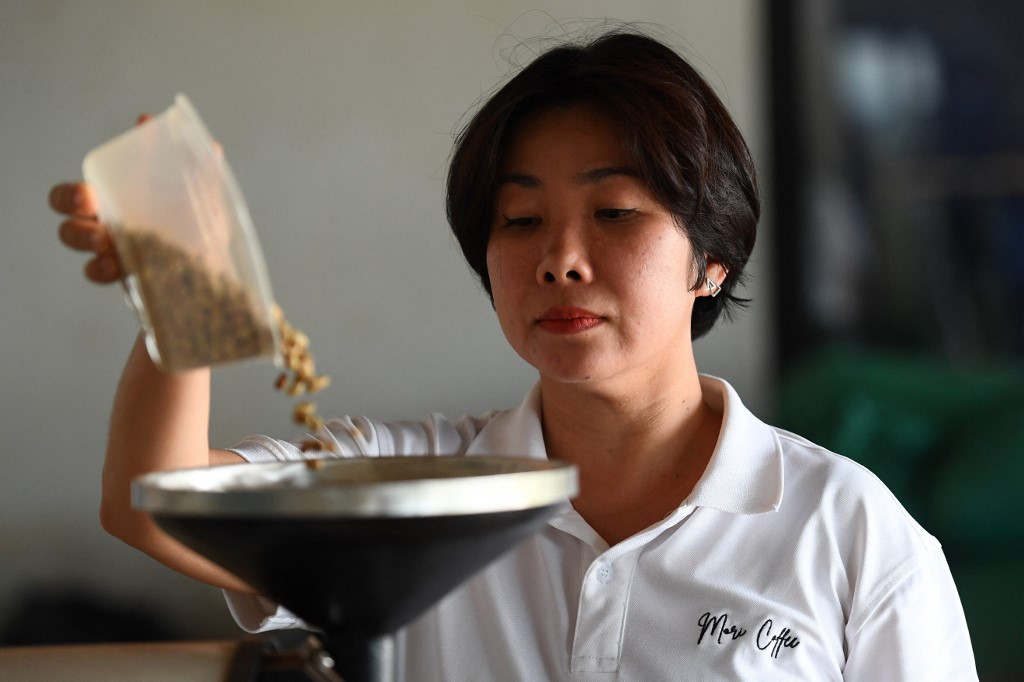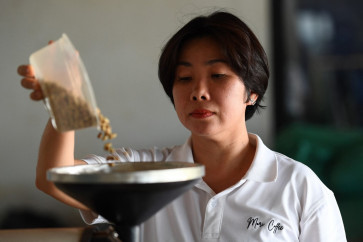Popular Reads
Top Results
Can't find what you're looking for?
View all search resultsPopular Reads
Top Results
Can't find what you're looking for?
View all search resultsVietnam's robusta: the go-to coffee bean in a warmer world?
Robusta coffee has a dire reputation, but a small group of farmers in Vietnam is trying to turn the bean's fortunes around as a warming world threatens the industry.
Change text size
Gift Premium Articles
to Anyone
B
itter and earthy. Fit for instant brews only. Robusta coffee has a dire reputation, but a small group of farmers in Vietnam is trying to turn the bean's fortunes around as a warming world threatens the industry.
As an interior designer in trendy Ho Chi Minh City, Tran Thi Bich Ngoc, 42, largely stayed clear of Vietnamese coffee, puzzling over why it didn't taste as good as cups from abroad.
Now, nearly a decade later, she runs her own coffee farm -- "Mori" -- in the remote Central Highlands, cultivating robusta she believes can match the world's favourite bean, arabica, in quality and flavour.
"My beans have a fruity, flowery smell, and they taste strong -- but in a gentle way," Ngoc told AFP at her farm close to the city of Pleiku, in the heart of the Vietnamese robusta region.
"Vietnamese farmers need to know it is possible to make these beans taste good."
'Vicious circle of bad quality'
Long scorned by giants such as Starbucks, robusta -- which has almost double the caffeine content of arabica -- is found in most instant coffees, as well as some espresso blends.



















